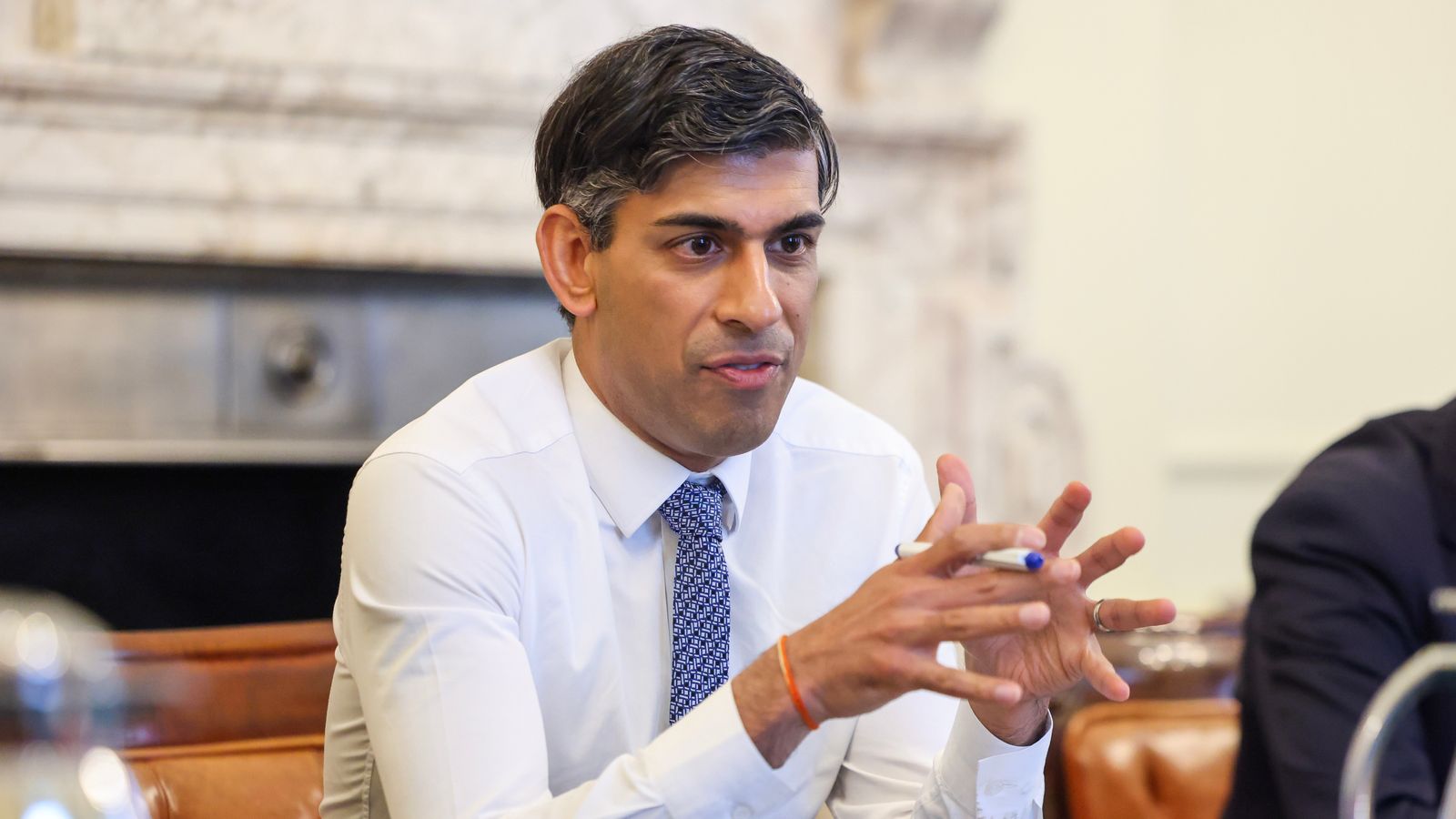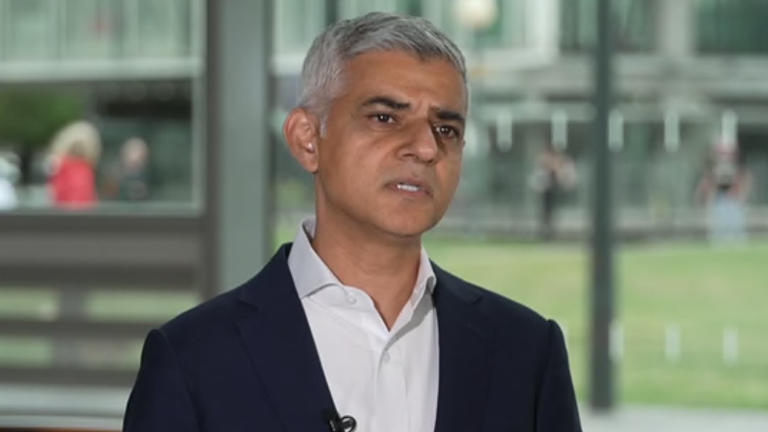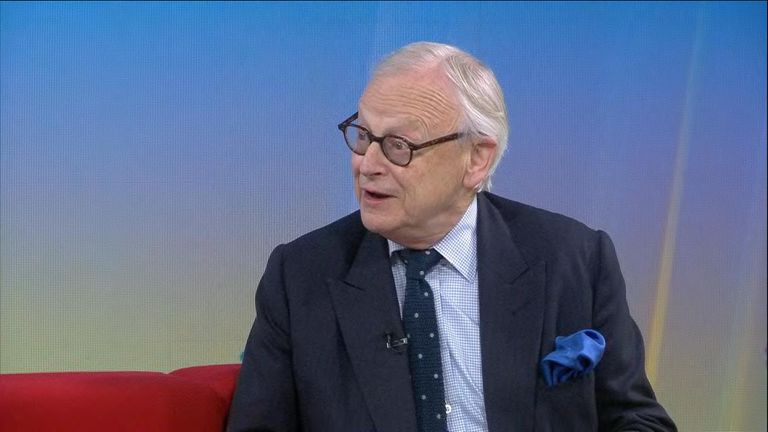Rishi Sunak will head to Scotland on Monday as the Conservatives kick off a week of campaigning on energy security.
Number 10 said the prime minister would use the trip to “highlight the central role” the country will play in “defending the UK against disrupted global energy supplies” and reaching the government’s net zero targets.
Reports over the weekend claimed Mr Sunak would announce a new carbon capture project on the visit, as well as new licenses for North Sea oil and gas exploration – putting down a marker against Labour’s plans to stop any new drilling.
But Labour accused the PM of “lurching desperately towards a culture war on climate to appease his split party”.
Mr Sunak is expected to confirm how “Scotland will continue to be at the forefront of UK government plans to strengthen the UK’s long-term energy security” during his trip to the north east of the country.
The prime minister will also “highlight the crucial role that the region will play in enhancing and delivering on the UK government’s commitment to reaching Net Zero in 2050 and enhancing long term energy security for generations to come”
But the move comes as both main parties continue to argue over the future of their green policies.
The Conservatives’ narrow victory in the Uxbridge and South Ruislip by-election two weeks ago opened a can of worms within the Labour Party over its London Mayor Sadiq Khan’s plan to expand the Ultra Low Emission Zone (ULEZ) to the capital’s outer boroughs – something Sir Keir Starmer blamed for the loss.
The Labour leader and Mr Khan are continuing to hold discussions over the extension, with Sir Keir calling on his colleague to “reflect” on the impact on voters.
But Mr Khan has stood by the decision, on the basis it will improve air quality for five million people in Greater London.
Meanwhile, MPs on the right of the Conservative Party are appealing to the PM to rethink the government’s net zero commitments in light of the win, with calls for delays to a number of targets – including putting back the ban on the sale of petrol and diesel cars from 2030 to 2035.
Mr Sunak insisted on Sunday the 2030 deadline would remain, but did announce plans to for a review of low traffic neighbourhoods (LTNs), saying he was on the side of drivers.
Downing Street has confirmed ministers are scrutinising existing pledges “in light of some of the cost of living challenges”, as the prime minister promised a “proportionate and pragmatic” approach to net zero.
Read more:
Is carbon capture and storage a fossil fuel industry fig leaf or vital for net zero plans?
What are the Conservatives’ green policies – and what could be scrapped?
Mr Sunak is set to meet industry leaders and workers while on the visit to Scotland.
And the government pledged that they and energy authorities would “go further than before in announcing continued decisive action to boost the capability of the North Sea industry to transition towards net zero, strengthen the foundations of the UK’s future energy mix and create the next generation of highly skilled green jobs”.
SNP Westminster leader Stephen Flynn said any investment would be welcome, but he warned against any more “broken promises or delays”.
Meanwhile, Labour’s shadow climate change secretary, Ed Miliband, attacked the government for “13 years of failed Tory energy policy”, saying: “Every family and business is paying the price, in higher energy bills.”
He added: “It is absurd that having left this country so exposed, the Conservative Party is asking the public to believe they can fix it.
“And it’s telling that while Labour focuses on lower bills and good jobs, Rishi Sunak lurches desperately towards a culture war on climate to appease his split party, losing track of what he believes from day to day, depending on which faction he’s met with.
“It’s no way to govern and it’s costing working people.”


